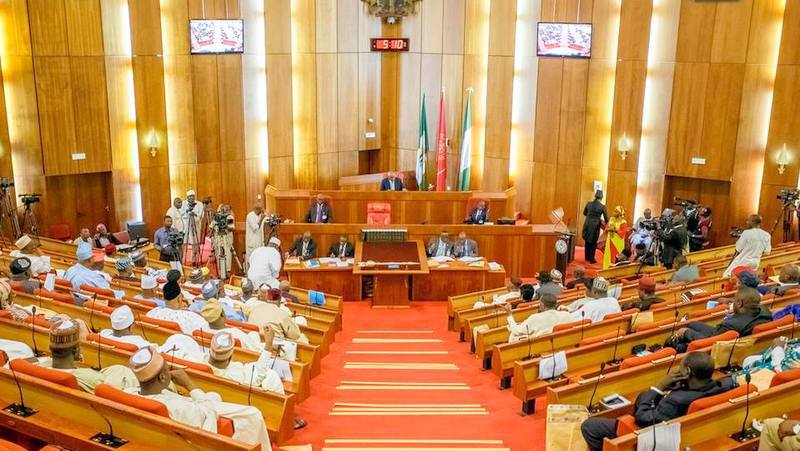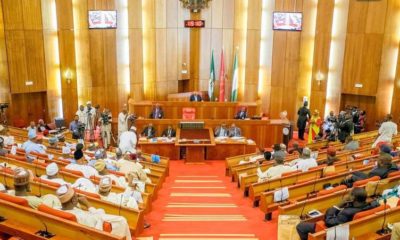News
Things You Probably Should Know About the Social Media Bill
 You no doubt know about the Social Media Bill. The bill has passed a second reading at the Senate, and the populace are vehemently against it.
You no doubt know about the Social Media Bill. The bill has passed a second reading at the Senate, and the populace are vehemently against it.
Still, knowing about something isn’t exactly the same as knowing what that thing is.
So, what exactly is the Social Media Bill?
It’s actually called the “Protection from Internet Falsehood and Manipulations Bill, 2019,” and was sponsored by Senator Muhammed Sani Musa, representing Niger East Senatorial District.
It’s important to note that the bill is not applicable to people in Nigeria alone, and is instead applicable to anyone anywhere who makes a social media post about Nigeria.
The bill, according to its footnotes gotten from Premium Times, aims to:
Prevent Falsehoods and Manipulations in Internet transmission and correspondences in Nigeria.
Suppress falsehoods and manipulations and counter the effects of such communications and transmissions and to sanction offenders with a view to encouraging and enhancing transparency by Social Media Platforms using the internet correspondences.
Prevent the transmission of false statements or declaration of facts in Nigeria.
End the financing of online mediums that transmit false statements.
Detect and control inauthentic behaviour and misuse of online accounts (Parody accounts).
Ensure the poster discloses such information when paid content is posted towards a political end
Sanction offenders.
Who will the bill penalise?
People who:
Transmit a statement that is false or,
Transmit a statement that might:
- Affect the security or any part of Nigeria.
- Affect public health, public safety or public finance.
- Affect Nigeria’s relationship with other countries.
- Influence the outcome of an election to any office in a general election.
- Cause enmity or hatred towards a person or group of persons.
And what are the penalties?
Anyone guilty of the above is liable to a fine of ₦300,000 or three years imprisonment or both (for individual); and a fine not exceeding ten million Naira (for corporate organisations).
Same punishment applies for fake online accounts that transmit statements listed above.
There’s also a rule concerning parody accounts and bots
So parody accounts, like @TheMBuhari and @PoliceNGfaux, which are fun for social media users, seem to be a bother to our lawmakers. They are described as “inauthentic online accounts” in the bill.
Where an inauthentic online account or a bot is used to
- Transmit in Nigeria the statements mentioned in subClause (1) and
- For the purpose of accelerating such transmission, the person is guilty of an offence under that subClause, shall be liable on conviction
In the case of an individual, to a fine not exceeding N300,000 or to imprisonment for a term not exceeding 3 years or to both.
Internet Service Providers are not exempt
Here’s a very scary part: how the bill states that the NCC may decide to block our internet.
Law Enforcement Department may direct the NCC to order the internet access service provider to take reasonable steps to disable access by end‑users in Nigeria to the online location called in this Clause an access blocking order), and the NCC must give the internet access service provider an access blocking order.
And what happens if the ISPs don’t obey?
An internet access service provider that does not comply with any access blocking order is liable on conviction to a fine not exceeding ten million naira for each day during any part of which that order is not fully complied with, up to a total of five million naira.

















